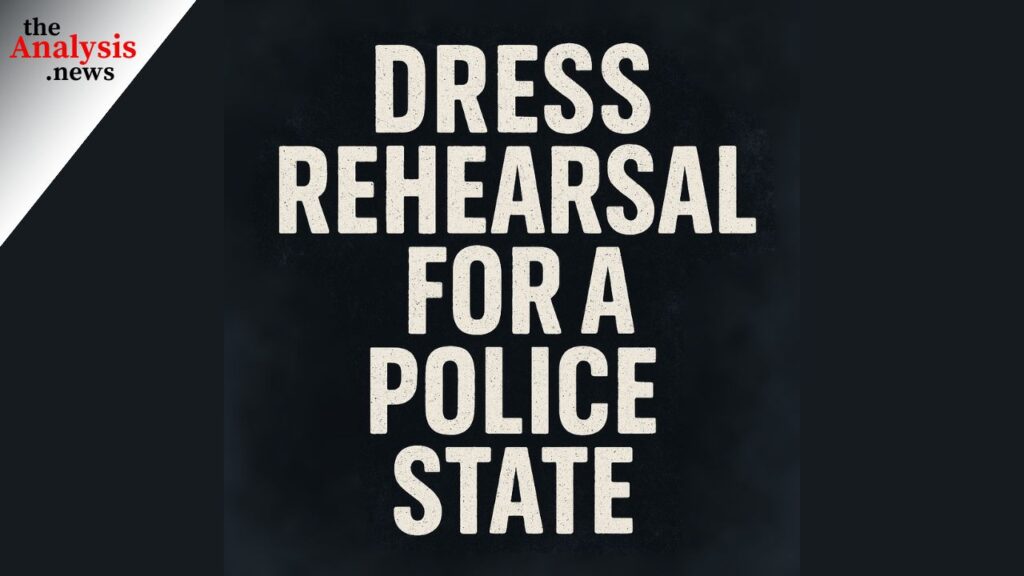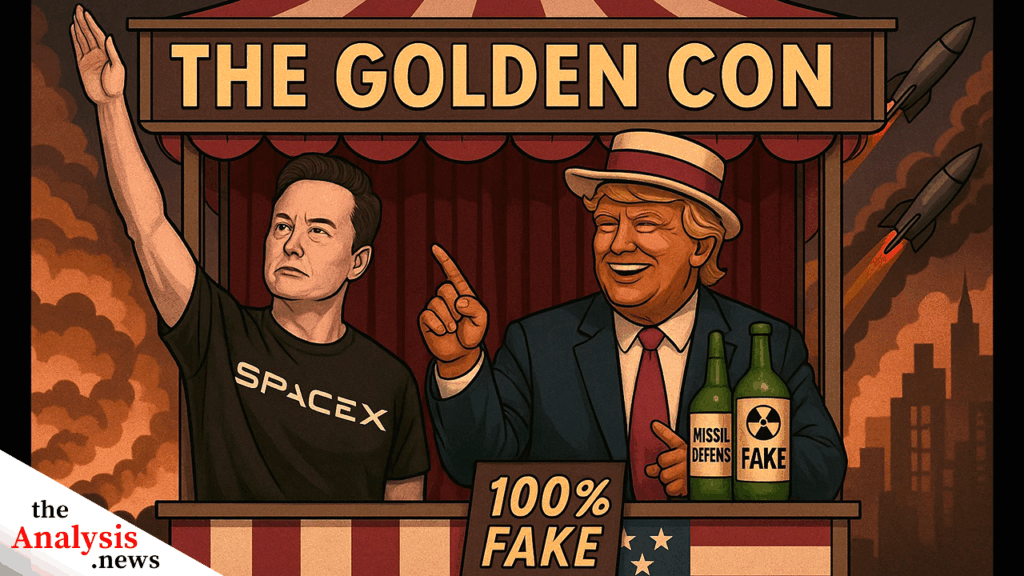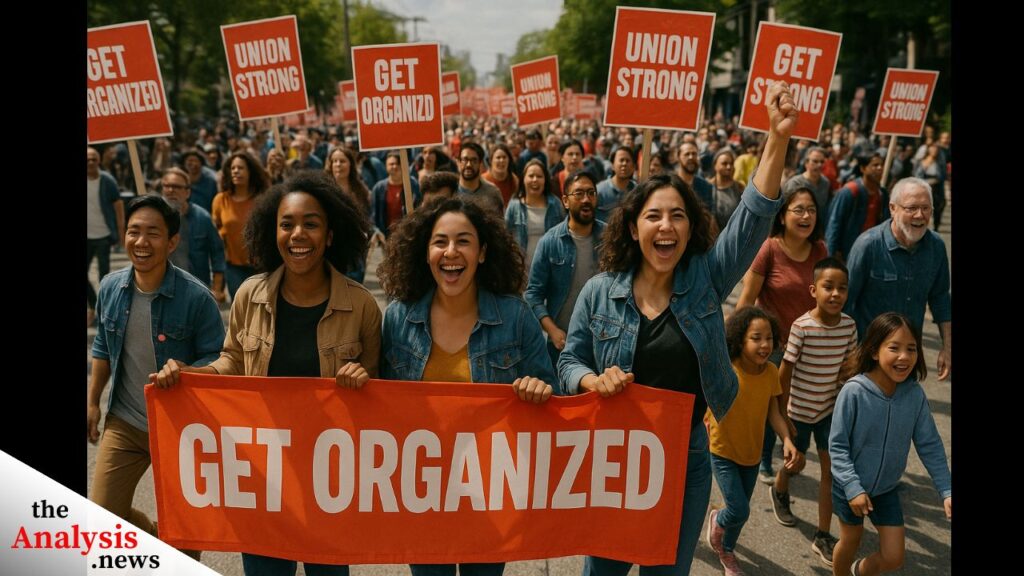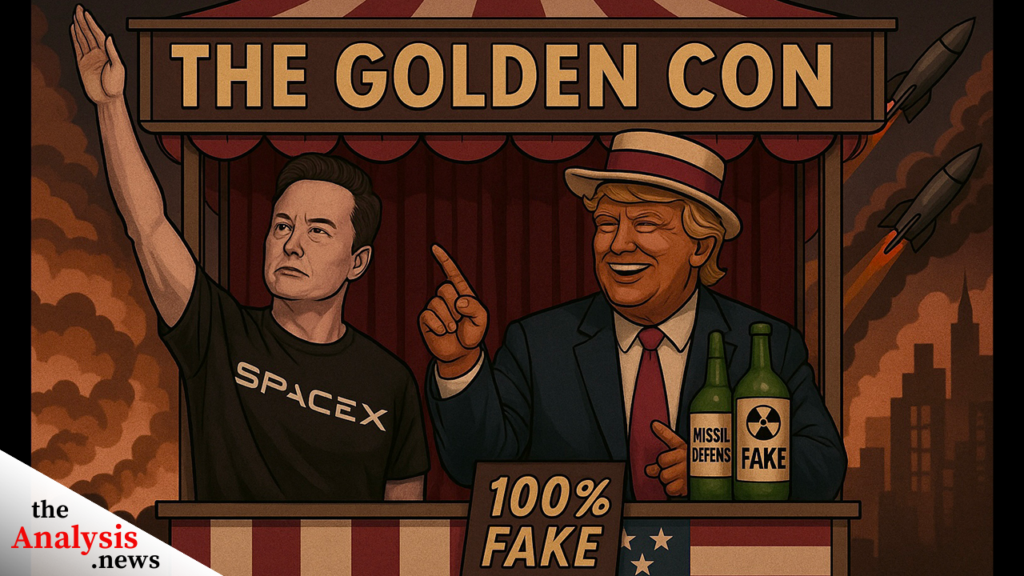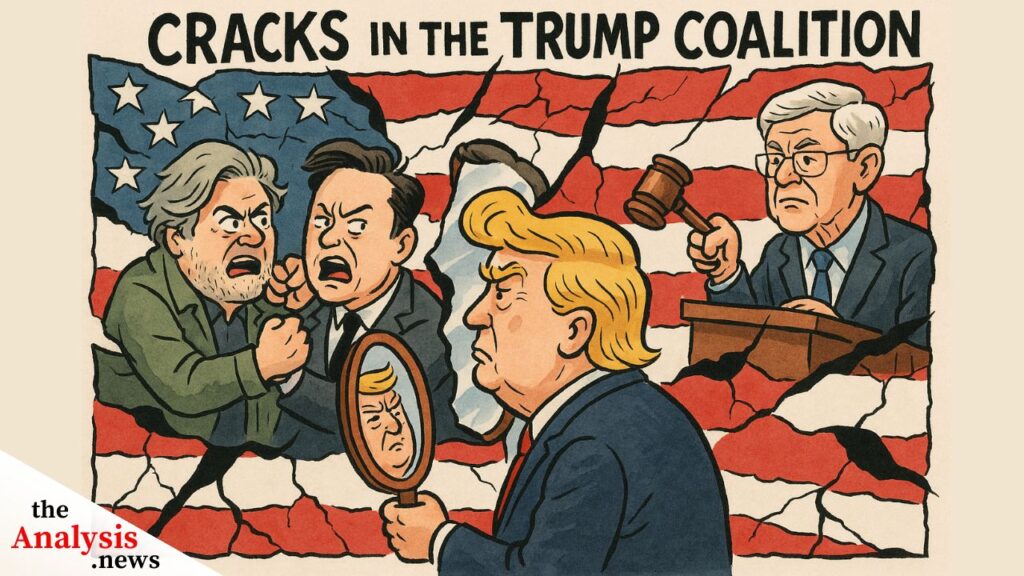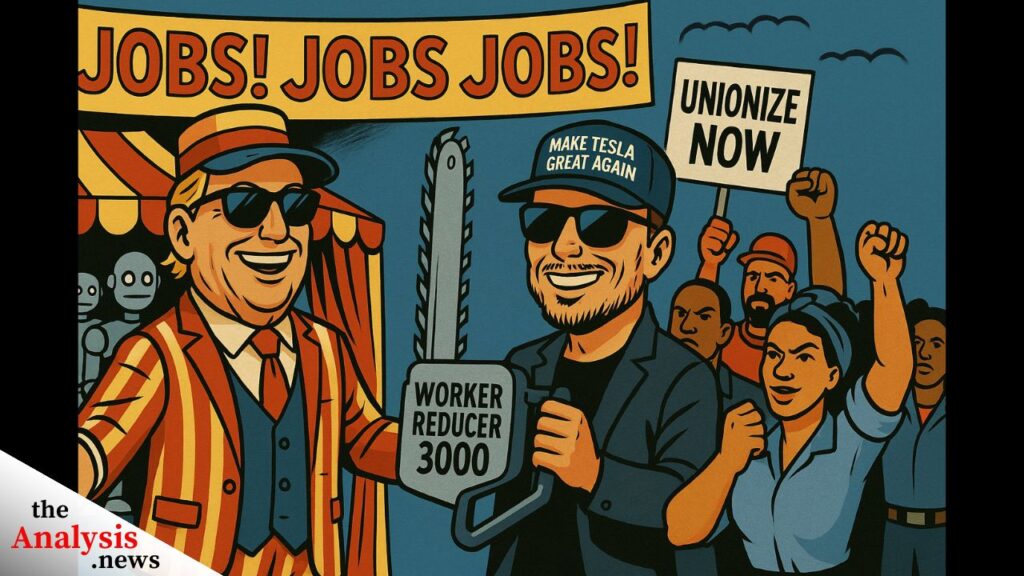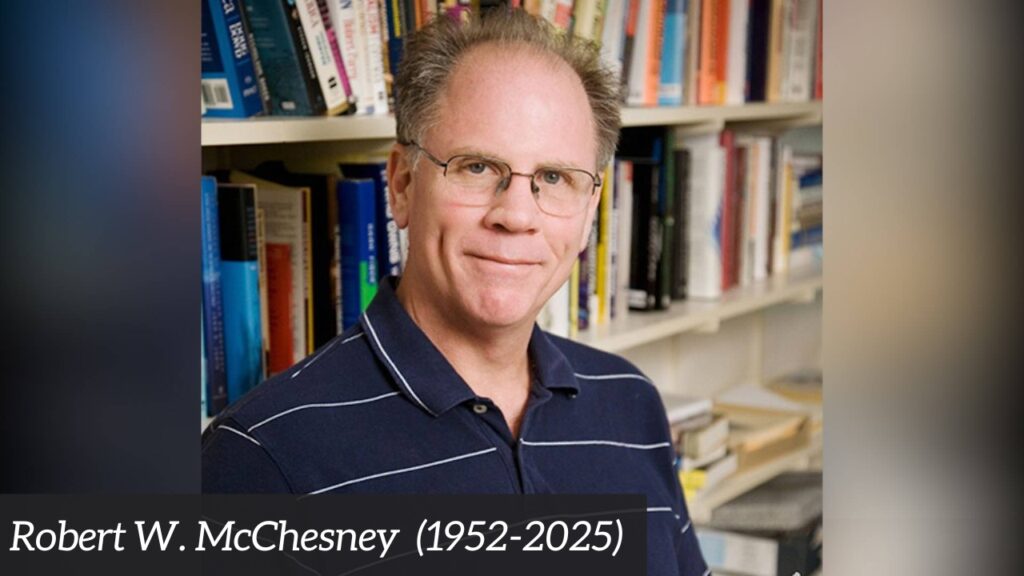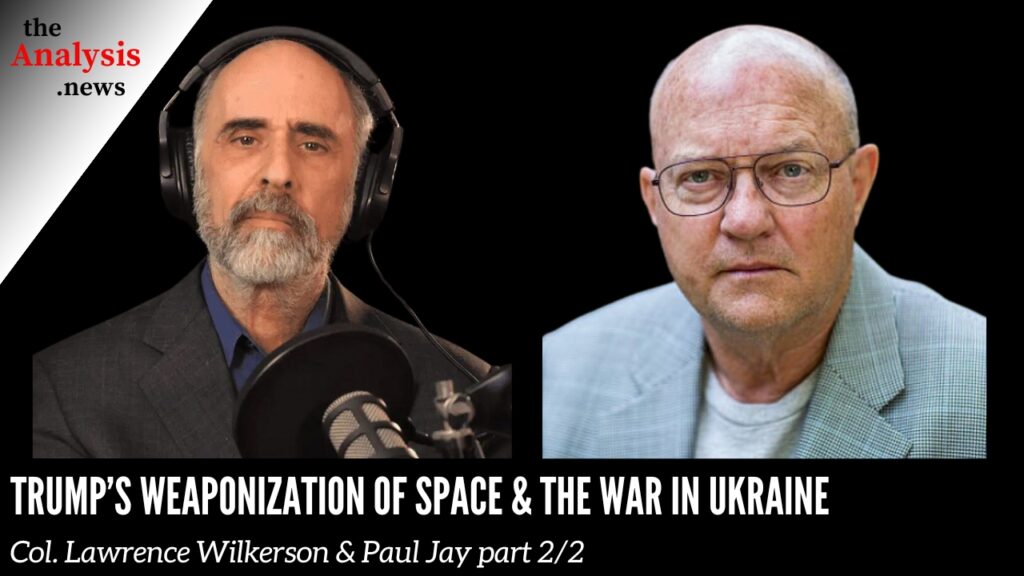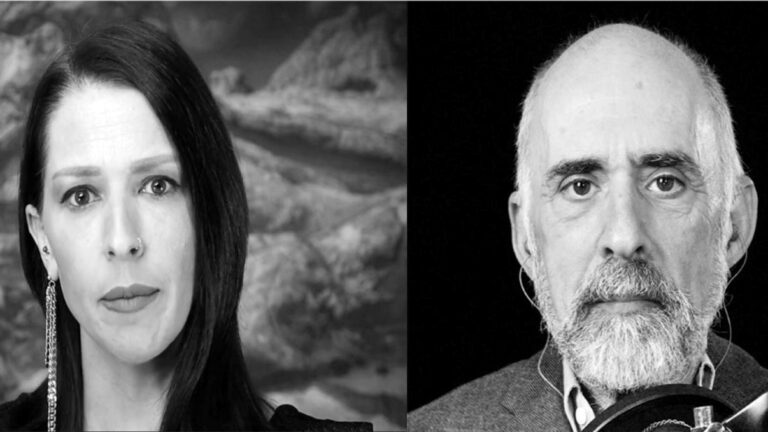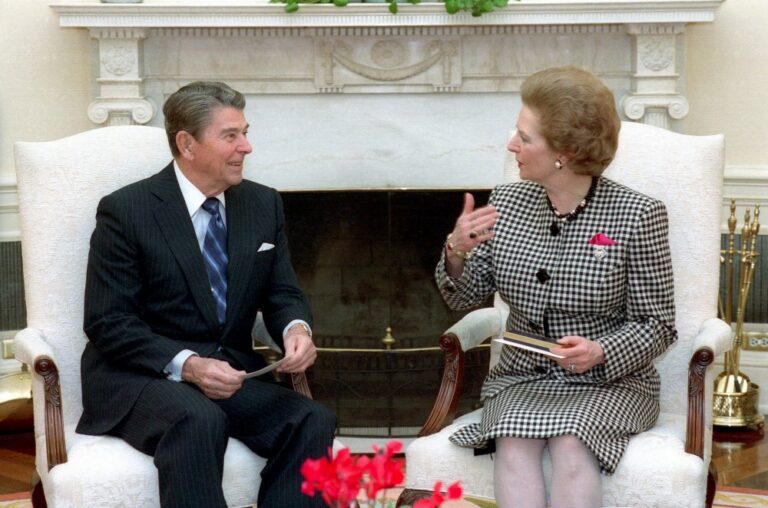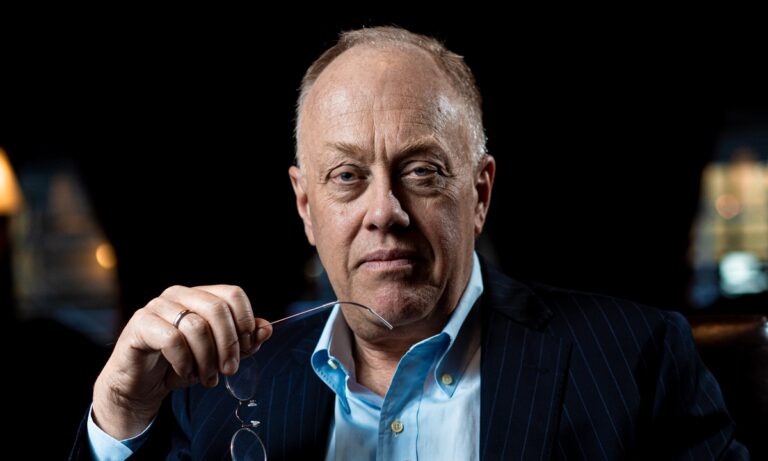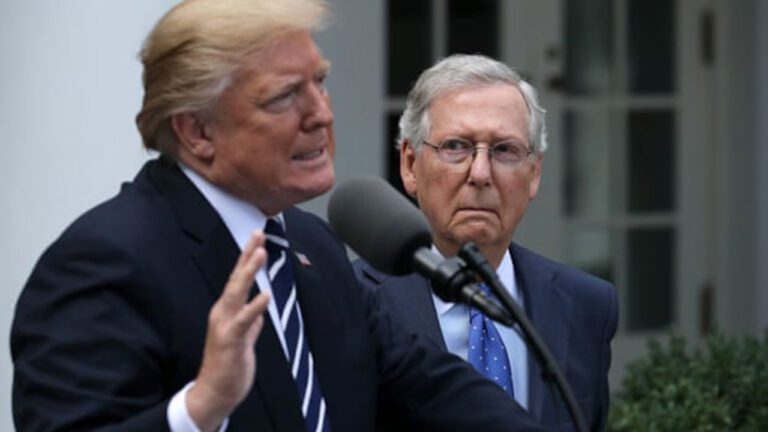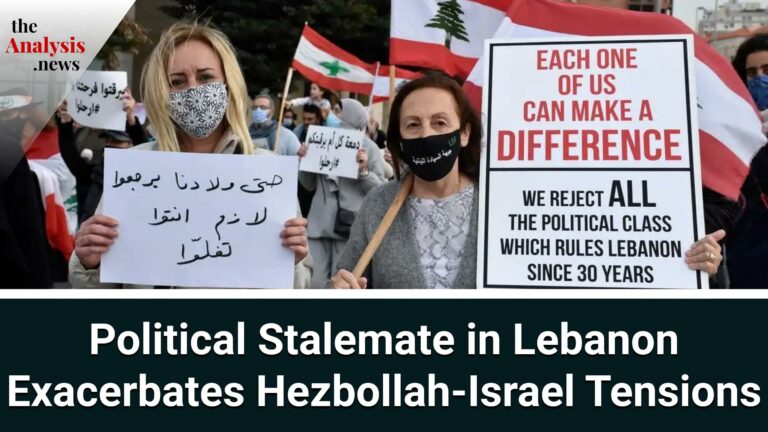Throughout his recent presidential campaigns, former President Trump has garnered widespread conservative Evangelical support and the endorsement of powerful televangelists such as Paula White-Cain. André Gagné, Professor of Theology at Concordia University, explains the New Apostolic Reformation and its ties to the Neo-Charismatic Pentecostal movement, which constitutes the largest growing sector of Christianity both globally and within the United States. In the U.S., Neo-Charismatic Christianity has been largely hijacked by New Apostolic Reformation firebrand Trump supporters who push a radical conservative agenda.
Talia Baroncelli
You’re watching theAnalysis.news, and I’m your host, Talia Baroncelli. I’ll shortly be joined by theologist Andre Gagne. We’ll be speaking about the Neo-Charismatic Pentecostal leaders as well as the New Apostolic Reformation.
If you’d like to support the work that we do, you can go to our website, theAnalysis.news, and hit the donate button at the top right corner of the screen. Make sure you’re on our mailing list; that way, you’re always up to date every time a new episode is published. You can like and subscribe to the show on YouTube or on other podcast streaming services such as Spotify or Apple. See you in a bit with Andre Gagne.
Joining me now is Dr. Andre Gagne. He is a professor of theological studies at Concordia University in Montreal. He’s written numerous articles on the Christian right and the New Apostolic Reformation. He also wrote a book in 2020, which has since been translated into English and updated. It’s called American Evangelicals for Trump: Dominion, Spiritual Warfare, and the End Times. Thank you so much for joining me today, Andre.
Andre Gagne
Thank you so much, Talia, for inviting me. I’m really excited to talk with you.
Talia Baroncelli
Well, I’m really excited to speak to you. I think this is a very opportune moment, given the RNC speeches we all saw last week. The RNC Convention took place last week. Of course, Trump and JD Vance were both referring to divine intervention, saying that it was because of divine intervention that Trump was able to survive the assassination attempt. Religion played a very large, explicit, and apparent role in the speeches that were given at the RNC.
Given that you’ve been writing a lot about the Neo-charismatic Pentecostal leaders and how these leaders are also shaped by the New Apostolic Reformation, can you talk about what that actually is? What these movements or sectors of Christianity are? How are they able to enact their own influence over President Trump?
Andre Gagne
Yes. Context matters when it comes to evangelicals. We have a tendency to talk about evangelicals in more general terms. My book really deals with a segment of evangelicals that I call Neo-charismatic Pentecostals. These are evangelicals that focus more on what is called the gifts of the Holy Spirit, the work of the Holy Spirit in the lives of individual Christians and in what is often referred to as the body of Christ or the Church.
The emphasis on the Holy Spirit is also tied to the fact that the Holy Spirit, in their understanding, empowers Christians to live their lives as Christians in a way that is seen as manifestations of gifts of the spirit. When we talk about Pentecostals, they believe in things like speaking in tongues or things like miracles, that God still does miracles today and God still heals, or the idea of prophecy, predicting, hearing the voice of God somehow and predicting the future, or giving words of wisdom or words of knowledge. So supernatural interventions of the spirit in their lives. This is a particular emphasis because when you talk about evangelicals, there are evangelicals who don’t put as much emphasis on this idea of the supernatural element of the spirit in a believer’s life. Neo-charismatic Pentecostals are basically those individuals who focus on that.
The popularity of Pentecostal denominations emerged at the beginning of the 20th century. There was a very important revival called Azusa Street, where a group of individuals in Los Angeles received the visitation of what they believed to be the Holy Spirit and began speaking in tongues and manifesting those charismatic gifts, those gifts of the spirit. In the early 20th century, you had what often historians of Pentecostal tradition will call the first wave of the spirit in that early 20th century.
Then you have something that happened near the middle of the 20th century, a movement that emerged out of the main denominations like Roman Catholicism, Anglicanism, and other denominations where the Pentecostal experience, they’ve also received in those main denominations that same kind of experience. You have Roman Catholics in the sixties and seventies who start speaking in tongues and believing in miracles and so on. This is a moment often referred to as the second wave of the spirit or the Charismatic Renewal.
Then a little later, some 20 years or so later, in the 1980s, you have another kind of movement of the spirit, the third wind, which is those evangelicals that had not experienced the Pentecostal experience, now themselves receive or experience the gifts of this supernatural endowment of the spirit of God in their lives. They didn’t want to be labeled as Pentecostals. They’re kind of Neo-charismatics. You have those Pentecostals, and then in the sixties and seventies, you have those Charismatics, and then in the eighties, you have these Neo-charismatics, sometimes also referred to as Neo-pentecostals.
To simplify, when we talk about all of these people that put this emphasis on the spirit of God in their lives, through the manifestations of the gifts of the spirit, we can call them Neo-charismatic Pentecostals. It encompasses all of these types of individuals. They are essentially, at the moment in the world, the fastest growing segment of Christianity, with close to 650 million individuals that adhere to these types of ideas and adhere to this kind of spiritual life.
Talia Baroncelli
Sorry to interrupt, but I’m assuming that the largest denomination would be Catholicism.
Andre Gagne
Yeah, Catholicism. Then you would have these types of groups, these types of Neo-charismatic Pentecostals. Now, we wouldn’t call them denominations per se.
Catholicism is really a category on its own: Anglicanism and Protestantism. Now you would find Neo-charismatic Pentecostals embedded in all of these. You see, amongst Protestants, amongst evangelicals, amongst Catholics, you would have Charismatic Catholics, for example, but if you take all of them, they comprise of the fastest-growing type of movement within Christianity in the entire world. Such growth that in 2015, there will be over a billion. They’re catching up to Catholics, in a sense, self-identified Catholics as a movement. It’s very, very prevalent throughout the world. It’s not strictly an American phenomenon. This is really a transnational movement.
When it comes, because your question was also tied to the idea of the new apostolic reformation. Now the New Apostolic Reformation also emerges out of that. The term or this expression New Apostolic Reformation was coined by an individual called C. Peter Wagner.
In the mid-1990s, C. Peter Wagner was a professor, a seminary professor, who taught at Fuller Theological Seminary in Pasadena, California. He was a specialist in church growth and mythology. He was very much interested in trying to figure out why certain churches across the world were growing versus other more traditional churches that were in decline. What he realized is that the churches that were growing were churches that had this sensitivity to the spirit of God, this sensitivity to the gifts of the spirit.
For him, what he noticed, for example, was that many Pentecostal churches across the globe were growing, whereas other traditional churches were not. Another thing he realized is that in many of these churches, the way that governance operated in those churches, churches were often led by strong charismatic pastors or leaders that functioned more like CEO’s. You see, it’s like their churches were more like enterprises in a sense. A lot of them were understood in those churches as apostles having an apostolic function. Strong leaders that they felt were chosen by God to give a vision to their Church so that their Church can grow and make a difference in their communities. What he observed is that throughout history, at least throughout the 20th century, there were many of these types of churches, but elsewhere, not necessarily primarily in the U.S.
For example, he noted that at the beginning of the 20th century, you had a strong african independent church growth movement that existed. These churches were independent. They didn’t belong to any kind of denomination, but they function with those characteristics. Later on, he noted that, for example, in Latin America in the 1970s, you had a strong grassroots, independent church movement that functioned with those types of characteristics. Same in China, a house church movement in China with strong characteristics that he had identified in these other types of movements. He started seeing in those movements a new way of doing Church, of being the Church. He said, “I need to find a term to describe what this is.” These were often non-denominational churches. At first, he thought, maybe I should call this non-denominational, but in some cases, some of those churches were part of denominations. Eventually, he relented, and he said, “Okay, this is, for me, a new reformation.” It’s something different. It’s a new reformation, and it’s apostolic in nature. So, he called this New Apostolic Reformation.
Peter Wagner was not the creator of the New Apostolic Reformation. He simply labeled something that he had observed in other churches across the globe, and now he was seeing emerge in the U.S. So in 2001, he said, “The U.S. now has entered a second apostolic age.” Wagner could be credited with having created networks of apostles, apostolic clubs and networks to sustain what he called the New Apostolic Reformation. New apostolic reformation is an idea. It’s a way of doing Church. It’s now understood as a movement because you have many, many churches, but there is no carrying card for New Apostolic people. They won’t go around saying, hey, we’re part of the New Apostolic Reformation.
Talia Baroncelli
That was my next question. In your book, you also write about how something like 81% of evangelicals in the U.S. voted for President Trump in 2016, and something between 75% and 81% voted for Trump again in 2020. Would you say that a lot of these evangelicals who voted for him espoused these Neo-charismatic principles to a certain degree or that they would align themselves with the New Apostolic Reformation?
Andre Gagne
Yeah, in a sense, we could say that many of those who supported Trump would align themselves with the type of paradigm that C. Peter Wagner discerned in those churches, but it’s not only that. You see, you have other types of Non-charismatic Pentecostals, Non-Pentecostals, simply evangelicals, Baptists, Southern Baptists, and independent, fundamentalist Baptists that would also support Trump. This is where it becomes very, very murky to try to distinguish, okay, who is New Apostolic Reformation, who’s Neo-charismatic, who’s Pentecostal? It’s difficult. This is why many of the statistics that we see, we’ll talk about in more general terms, why evangelicals supported Trump at 81% in 2016 and between 76-81%, something like that, in 2020.
Yes, and what we need to say about those that align with this vision, this Neo-charismatic Pentecostal, New Apostolic Reformation vision, many of them were close to Trump during his first presidential mandate. People like Paula White-Cain, who was Trump’s “spiritual advisor.” Paula White-Cain, some of you are very familiar with her. She was very much in the news.
Talia Baroncelli
Yeah, there was a big scandal where she went off with her pastor or something. I can’t remember.
Andre Gagne
Well, what people say is that she was married three times. There are things like that. But for her, what stood out and why she became important, Paula White-Cain, in relation to Trump, is that she really introduced, in a sense, evangelicals to Trump. Like, even before 2016, she knew Trump. She had known Trump for several years. Trump knew who she was. He sometimes even watched her show. She has a daily show. He’s a televangelist, essentially.
In 2015, they had a very important meeting at the Trump Tower in New York. This is where Paula White-Cain became this link between evangelicals for Trump. So they were interested in knowing who Trump was. Would they support Trump? Would they back his candidacy? With that 2015 meeting, this triggered what we now call, or at least at the time, was called evangelicals for Trump. They supported Trump. You had very important Charismatic Pentecostal, influential leaders around Paula White-Cain at that meeting that sustained her and that were close to Trump and tried to have access to Trump. Of course, they encouraged their followers to vote for Trump. Of course, the success was unprecedented for Trump. Nobody thought that Trump would actually win. If you remember the polls at the time, everybody was saying that Hillary [Clinton] would win, but Trump won mainly because of the work of these people.
Talia Baroncelli
Do you think it was these evangelicals specifically who were seeking out Trump or was Trump seeking out their support? I guess it’s a chicken or the egg question because maybe they were trying to cozy up with him in order to further their own agenda, be it anti-abortion or trying to influence different landscapes or theaters of power, so to speak. Or did he catch on to it and think it would be good for him to align himself with these groups in order to track a much wider segment of the American demographic?
Andre Gagne
Yeah, actually, it’s both. It’s very transactional, the relationship that Trump and evangelicals had and still have. Evangelicals, they recognized in Trump this important individual that would listen to them, listen to their grievances, and be sensitive to what they wanted. Trump needed that. You see, at the same time, he needed to cater to evangelicals to get their support. It was very, very transactional.
Even in the second term, when he was seeking re-election, he was constantly reminding evangelicals what he had done for them; even now, reminding evangelicals of everything that he had done for them i.e. the conservative judges on the Supreme Court, the move of the American Embassy from Tel Aviv to Jerusalem, and so on. Everything that he did for them was a guarantee for these evangelicals that Trump was on our side. He’s the one that represents our values. At the same time, they’re very much aware that Trump is not perfect. When you look at the life of Trump, it’s not a reflection for many Christians of what a Christian necessarily should be. But for them, they justified their choice by referring to Trump as this chosen figure by God.
You see, already in 2016, there’s this individual by the name of Lance Wallnau, who wrote an important book called (at least in that world) God’s Chaos Candidate: Donald J. Trump and the American Unraveling. I can’t remember the subtitle, but God’s Chaos Candidate. What Lance Wallnau does in his book is legitimize the selection of Trump and actually “predicted that Trump would win the election because Trump had been chosen by God.”
He compares Trump to an ancient biblical figure that existed in history, but that we find in the Bible as the Persian king, Cyrus. He says this Persian king was a pagan king. God used Cyrus to deliver the ancient Jews from their captivity and grant them return to their land so that they can rebuild their sacred temple. Trump will be this kind of new Cyrus speaker that will restore America back to God and give evangelicals their voice back in society. They all constantly compare Trump to this chosen by God figure. They’ve done this throughout time. They’ve compared Trump to King David. They compared Trump even to Jesus. He’s persecuted like Jesus was persecuted by Pontius Pilate and so on.
For them, Trump has become this mythical figure, almost, a divine figure. We can say all sorts of things; you were talking about the Republican National Convention, and that came out of Trump’s attempted [assassination]. It was scheduled before that, but Trump came, and people started talking about divine intervention, about Trump’s attempted assassination. All of this blends in very well with their conception that God has chosen this individual and that God will protect them against any adversary or any kind of harm because God has a plan for America and Trump is a solution to America’s problems.
Talia Baroncelli
I’m wondering who the audience usually is when these charismatic leaders are speaking because a lot of people will remember a televangelist by the name of Pat Robertson, who also founded the Christian Broadcasting Network in 1960. In 1988, he ran for the Republican presidential nomination. From a historical perspective, I’m wondering, was his audience slightly different? If you look at a lot of evangelicals today, conservative evangelicals, a lot of them are Black or Hispanic. You would think that perhaps this new form of evangelicalism has expanded to include people that it previously didn’t include.
Andre Gagne
You’re absolutely right when you’re saying that. I think it’s important to recognize that you have Hispanics that will embrace this vision. You will have some Black communities. You had Blacks for Trump. You have some of these people who do embrace this vision of Christianity. It’s true. When you’re looking at what we call often the alt-Christian right it was a bit different up to a certain extent. It emerged out of the moral majority in 1979 in reaction to not only Roe versus Wade, but other things in American society at the time. They voted Jimmy Carter out, which was interesting when you think about it because Jimmy Carter in ’76 was an evangelical. He was a Baptist, but he was an evangelical. They were very happy that he was there, but in his first term, they weren’t satisfied with him, and then they voted him out and they voted for Reagan.
In ’79, they constituted what was called the moral majority. It was about, of course, opposition to abortion, but it was also issues related to gay rights. It was issues related to the traditional family and the equal rights amendment. You had all of these types of social issues that were very, very important for evangelicals; issues around education. Many evangelicals felt that in public schools, their children were indoctrinated. They wanted to pull out their children from public schools and start homeschooling their children and teach them the ways of the Lord to protect them against the evil secular humanists.
You have this generation that’s based on issues pertaining to the family. The grievances often are tied to their view of what they understand to be the traditional family. But it was also very much rooted in; the moral majority, we think, emerged out of the opposition to the abortion issue, but it’s not only that. There were issues around race at the time, specifically in terms of a particular Bob Jones University that had its tax-exempt status revoked because it did not adopt anti-segregational policies in the institution. The IRS had threatened them at the time and started even as early as 1970, threatening them that if they didn’t align with what was required since the Civil Rights Act, they would lose their tax-exempt status. When all of this happened, that really triggered a lot of evangelicals because they felt that the government was actually impeding the affairs of the Church. They felt that the government wasn’t respecting the separation of Church and state. This racial issue was actually what triggered initially for certain evangelical historians this is what actually triggered the moral majority. You had the moral majorities for about ten years, then it died out. It ended in 1989.
Today, you’re facing some of the same issues. They’re still the same issues about the traditional family. At the same time, it’s true that we’re talking about the fact that you’ll have Latinos, and you’ll have some from the Black community that will embrace ideas of “Christian nationalism” or at least seem to align themselves with these types of ideas.
At the same time, what I was hearing at the convention was very much even from Trump a very anti-immigrant stance on how immigrants are coming in, and they’re stealing jobs. There’s all of that. For many of these Latino communities, the specter of socialism, communism, that comes from countries like Venezuela, where they had maybe bad experiences, and this is why they’re now in America. Then you’re projecting the specter with the Democrats, this is what you’ll have. You’ll have socialism, and socialism is failure, and you’re going to be stuck with this. It’s reminiscent for them of their past experience. They do have a strong religious backbone, be it evangelical or even Catholic, very traditional. They see themselves in some of the rhetoric, the religious rhetoric that comes out from these groups on issues around LGBTQ rights and issues of abortion, that for them corresponds to their religious outlook on life. This is why, for them, the Republican Party is the better option than the Democratic Party.
Talia Baroncelli
I wanted to stay on the race question because if you look at, say, the KKK or the nazi party, they have very clear language around racial purity. They would never accept a person of color into their party or into their group. We’re talking about conservative evangelicals, and, of course, it’s multiracial and multiethnic. Do you think the language there has changed purely from a perspective of convenience, just to become even greater, to increase its members, and to have more political influence? Or is there another reason there for why the people who actually adhere to these beliefs are increasingly more Black or Hispanic?
Andre Gagne
Yeah, I think there could be a combination of that in terms of they could be trying to adjust the rhetoric to make it more welcoming. At the same time, there is really fundamentally, and I think this is often neglected in reporting, for example, the notion, the theological idea. You see, the real theological idea is that if you adhere to those ideas, it doesn’t matter if you’re Black, Hispanic, Asian, or white. You adhere to those ideas. These are ideas that we share, and we see ourselves as Christians because we share those ideas.
We often neglect, we think it’s more in terms of convenience, which in some places, it could be that. I’m not making a blanket statement that it’s only theological, but I think that we’re over-emphasizing maybe this accommodationist type of rhetoric to that of theology. It’s about how they read the Bible. It’s about what they see when they read the Bible in a particular way. They have a shared hermeneutic, they have a shared way of interpreting scripture that aligns with others. They will be part of that community if they tick off the red boxes in terms of what they believe and what they have adhered to.
I always try to very much temper my remarks when it comes to that because we hear a lot about white Christian nationalism. What you see is that Christian nationalism is a very broad category. There’s a lot of things that you can put in there. Often, it has been depicted with certain types of characteristics. There are people that can adhere to certain things and not to others. Would that necessarily make them Christian nationalists?
I was talking with someone recently who was telling me that a person that she knows is a Christian but a progressive. One of the characteristics that you often find in what is defined as Christian nationalism would be if you believe that America should be based on a form of Christian ethics or a form of ideas and values that are aligned with Christianity. The person was saying, yes. I’m a progressive, but I think it’s not a bad idea that maybe our social ethics would be Christian. For that person, the social Christian ethics is also one of inclusion, one of pluralism, one of openness to another. So you see, would that make that person a Christian nationalist? If that person would answer that question that way. Yes, it really depends on how you define certain things, certain terms, and how you apply those to certain individuals.
I think the best way to measure these things, and I don’t even know if it’s feasible to perfectly measure these things, but it’s really going through the route of what do these people actually think the Bible is, how do they read it, what’s their theology? From that, it tells you a lot about their positioning because how they think will affect how they will behave. Up to a certain extent, the way they think will affect their politics and how they will choose.
Talia Baroncelli
Well, just a final remark. What you’re saying sounds very similar to what Jeff Sharlet was writing about in his book, The Undertow: Scenes from a Slow Civil War. In his book, he mentions several instances in which he went to different evangelical fundamental militia churches and said that a lot of the people attending these gatherings at these churches were people of color. They were Black or Hispanic.
To me, what it seems like is happening is a different sort of othering. If you espouse this one specific set of Christian values or theology, and you’re still racist or xenophobic to people who don’t have the same view of America first, who are actually coming from Venezuela, out of the U.S., perhaps don’t espouse those same values or who represent the communist, socialist specter, then they’re to be excluded. The racist, xenophobic language is directed towards those people. So, the so-called “mad Black person,” rather than espousing these evangelical conservative values.
I think that can maybe explain what Trump was also referring to in his RNC speech when he said that he wants to extend a hand to all Americans, whether they be white, Black, Hispanic, or Asian because what matters to him is the political and social values they espouse. He’s trying to bring a larger multiethnic, multiracial group into the Republican Party in order to then demarcate or exclude other people who are coming from other countries. It seems like there’s no longer this language of racial purity. It’s inclusive only to a certain extent. It’s excluding people who maybe espouse more ideas that you or I might espouse when it comes to justice, solidarity, or prioritizing the working class and redistributing wealth and that sort of thing. It seems like the lines are shifting.
Andre Gagne
Yeah, that makes perfect sense what you are actually saying. When he talks about, when they come to our country, if they don’t like our religion; he talks about that, they don’t like our religion, then get out of our country. That’s essentially, it’s prioritizing a particular understanding of Christianity. You can be Black, you could be Hispanic, you could be Asian, if you agree with our worldview, our Christian worldview, and it’s a particular understanding of what we mean by Christian worldview, then it’s okay. You’re absolutely right. It’s another type of discourse. It’s another type of othering that has shifted in that sense. Absolutely. This is very good. Thank you for articulating this very, very clearly. It makes perfect sense.
Talia Baroncelli
How would you characterize JD Vance? Does he also come from this evangelical tradition or is he a bit of a different case?
Andre Gagne
Yeah, JD Vance is an interesting person. Of course, many of the ideas that are similar in evangelicalism, the evangelicalism that supports Trump, he will espouse. Vance is more Catholic. Often, we call this Catholic integralist that espouses a kind of idea or philosophy that is referred to post liberalism. But that might be for another podcast.
Talia Baroncelli
I think that would be a whole separate interview.
Andre Gagne
Yes.
Talia Baroncelli
All right. Well, thank you so much for joining, and thank you for watching theAnalysis.news. If you’d like to contribute or help us out in any way, please go to our website, theAnalysis.news, and get onto our mailing list. See you next time.
Podcast: Play in new window | Download | Embed
Subscribe Apple Podcasts | Spotify | Android | iHeartRadio | Blubrry | TuneIn | Deezer | RSS
Never miss another story
Subscribe to theAnalysis.news – Newsletter
André Gagné is a professor and chair of theological studies at Concordia University in Montreal, Canada.

